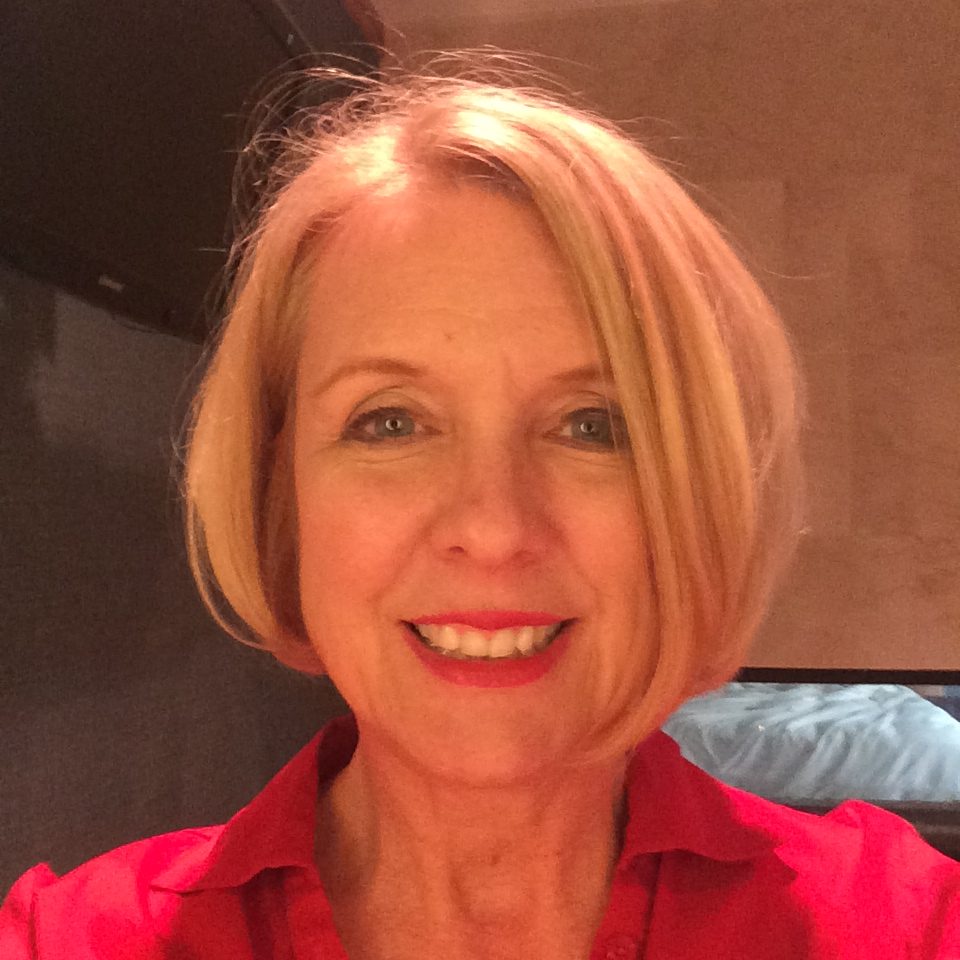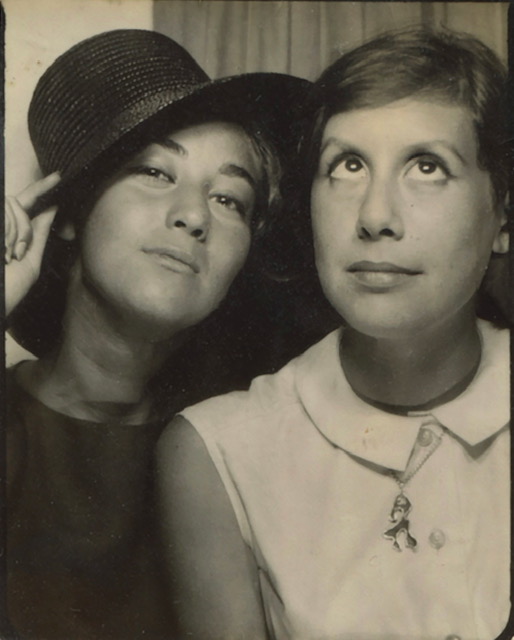When a life-threatening staph infection sent Dominick Buttiglieri, 64, to the hospital, his situation quickly worsened—and his wife, Deborah, soon felt overwhelmed.
“His organs were shutting down, and the doctors weren’t giving us much hope,” she said. Dominick was in pain and barely conscious; Deborah was beside herself with worry.
The Buttiglieris’ son lives in another city and couldn’t be there to help. Instead, he searched online and hired AnnMarie McIlwain, a patient advocate, who turned up at the hospital to assist. Immediately, the family felt more control over the situation.
“AnnMarie spoke to the doctors, gave me better insight into what was going on and made suggestions without telling us what to do,” Deborah Buttiglieri said. “I’m not an in-your-face person. I didn’t know what questions to ask to get the information I wanted.”
As Dominick started to recover, McIlwain helped the family arrange for his transfer to a good rehab facility. Now, he’s home and on the mend.
We have the most confusing health care system in the world. If you’re feeling overwhelmed, it’s not you.
—Caitlin Donovan
More and more patients and their families are following the same path as the Buttiglieris: enlisting the help of a patient advocate to navigate the complexities of the medical system.
“A patient advocate’s role is to make sure the medical team has the right information, to make certain the client is getting the proper attention, and translating for the family what is going on,” McIlwain said. “The hospital environment is stressful; patients are usually in pain, sedated and weak, and their loved ones are understandably emotional. It’s too much to advocate for themselves.”
Patient advocates support people undergoing medical treatment, with a focus on getting the best possible care while keeping costs as manageable as possible. Patient advocates may also use other names—health advocates, patient or health navigators, case or care managers or doulas. They work one-on-one with patients as independent consultants, paid by the patients or their families. Some advocates come with a medical or social work background; others learn on the job. Many join the field after assisting a family member.
“Patients should only have to concentrate on getting better,” said Caitlin Donovan of the Patient Advocate Foundation, a nonprofit that provides advocacy and patient education. “We have the most confusing health care system in the world. If you’re feeling overwhelmed, it’s not you.”
Multiple Roles
Patients who are considering enlisting the help of a patient advocate should first consider: What kind of help is needed? The role of a patient advocate can vary broadly, depending on the patient’s needs and the patient advocate’s area of expertise. Some patient advocates have medical training and assist with navigating medical care, sometimes even specializing in areas like oncology. Some focus on billing issues. Others may assist with more administrative tasks: scheduling medical appointments, helping people sign up for Social Security or Medicare, organizing medical information or hiring a caregiver. Some work in teams to provide a range of skills and expertise.
Patient advocates often fill the communication gaps that can occur with older adults who have multiple medical issues. Deirdra Kindred, an RN and patient advocate, was hired by a family to assist their 92-year-old mother, who was losing weight and refusing to leave her room in the upscale, assisted living facility where she lived.
“She was suffering from diarrhea and nausea and did not want to leave the room because she was afraid she’d throw up or have an accident,” Kindred said. She learned that the woman was taking 17 medications, some of which had been prescribed for years. She had several specialists but no one assessing her overall medicine intake. Working with the woman’s doctors, Kindred helped her wean to nine medications, and the diarrhea and nausea disappeared. Soon the woman was leaving her apartment, eating regularly and enjoying life again.
A patient advocate understands the system, knows how to ask the right questions and can lessen the burden for patients and their families.
Some patient advocates assist in navigating insurance and correcting billing errors. Experts estimate that as many as 80 percent of all medical bills contain errors. Yet the process for correcting those errors is often labyrinthine. If there’s a snag in insurance processing, a hospital typically will continue to bill the patient and even threaten to send the bill to a collection agency. Getting the right people on the phone who can resolve the problem—either at the hospital and/or the insurance company—can prove difficult and time-consuming. Most patients don’t have the knowledge or the energy to tackle the challenge. A patient advocate who works in this area, however, understands the system, knows how to ask the right questions and relieves some of the burden for stressed patients and their families.
“When our case managers help a patient, it takes an average of 22 phone calls to resolve a billing issue,” Donovan said. “Having someone who knows how to talk to billing offices and to insurers is incredibly helpful.”
Patient advocates also help navigate the vastness of the medical system. Barbara Abruzzo, a registered nurse, helps clients obtain second opinions, sorts out their options and manages complex care. She also may assist families in researching which doctors, hospitals or research facilities are best, given the patient’s condition and situation.
Abruzzo has organized conference calls that brought together family members, hospital administrators, surgeons, physicians and nurses at once to plan a patient’s care when it required the expertise of several different specialists. For that kind of complex care navigation, she believes, clients should seek a patient advocate with medical training.
“Doctors see that I know what I’m doing and that I mean business,” she said.
In the Hospital—and Out
Some patient advocates offer hospital accompaniment—visiting or even staying at the client’s bedside when family members can’t be there or feel they can’t advocate effectively in a complex situation.
“Too many medical professionals are overworked and overwhelmed,” said Lisa Berry, a patient advocate. “For years, doctors have told me off the record that hospitals are dangerous places, because they cannot do their jobs. It’s very easy for mistakes to be made.”
No one should go into a hospital without someone there to advocate for them, whether it’s a professional advocate or a family member, said Michael Weisburg, MD, a gastroenterologist. Most primary care physicians no longer have hospital privileges to attend to their patients when they’re hospitalized. Instead, patients’ care is managed by hospitalists—physicians who coordinate their treatment until they go home. Hospitalists work only in hospitals, which employ them, and the care they provide is dictated by each institution’s guidelines.
“The hospitalist is someone who has never seen you before, knows nothing about you and doesn’t have the time to learn about you,” Weisburg said. “And that doctor in charge may change every couple of days.”
A patient advocate can help as patients leave the hospital—a critical juncture when things can easily go wrong.
Weisberg experienced this dilemma himself during his 91-year-old father’s hospitalization for a broken hip. While visiting, Weisburg saw that his father was agitated and trying to get out of bed. Weisberg suspected a problem with his catheter and alerted a nurse. However, the hospitalist on duty was occupied by another emergency and simply prescribed a sedative, which only made the patient more agitated. Still busy with the emergency, the hospitalist ordered the nurse to restrain Weisberg’s father.
Because restraints are dangerous (they can cause patients to aspirate), Weisberg called another hospitalist who had cared for his father earlier and was off duty. That hospitalist ordered nurses to check on the catheter, which, as Weisberg suspected, was not functioning properly. Another catheter was inserted and quickly filled with two bags of urine. Weisberg’s father immediately felt much better and fell into a deep sleep.
“If I hadn’t been there, he could’ve been put into restraints, aspirated and died,” Weisberg said.
Another task of patient advocates is to assist clients as they transition out of the hospital for recovery at home, at rehab or at another facility—a critical juncture when things can easily go wrong. Often, hospitals will discharge patients who need ongoing medical attention, expecting family members to pick up the responsibility at home. Patients who don’t have family or friends willing or able to help may be left to fend for themselves.
Patients do have legal rights in this kind of situation, Berry noted, but most don’t know that. She works hard to make sure her clients aren’t discharged prematurely, which often occurs with Medicaid coverage or similar programs that pay minimal reimbursements to hospitals. In one case, a hospital tried to discharge one of her pro bono clients too early; the social worker on duty told Berry there was no option to protest. Berry knew better and insisted on an emergency hearing with an administrative law judge. The patient stayed.
Finding a Patient Advocate
The Alliance of Professional Health Advocates offers a complete list of services that patient advocates provide, as well as AdvoConnection, a searchable directory of patient advocates. While users may search by zip code, a patient advocate doesn’t necessarily need to be local. Many advocates can assist remotely, depending on the situation. The Patient Advocate Foundation, a nonprofit, offers a range of services, including trained volunteers who can assist patients with billing and getting access to care; much of their work is done remotely.
Keep in mind that independent advocates differentiate themselves from nurse navigators or patient advocates hired by hospitals or insurers, who don’t ultimately answer to the patient.
Another good place to start is with nonprofit groups that support people with specific diseases or conditions. These organizations may offer referrals to patient advocates, including some who are volunteers. The American Cancer Society, for example, can connect patients with advocates in some areas of the country.
When looking to hire a patient advocate to help navigate medical care, talk to at least three candidates by phone, Berry said. (Most will do a preliminary consultation at no cost; ask first.) To get a good feel for whether someone will have the expertise to address particular concerns, provide a clear description of the patient’s issues and needs.
Family as Advocates
Family members can be effective patient advocates, especially if they’re quick studies and have the time to devote to the task. Bruce Carr found himself in that role in early 2019 when his sister, Joan, 72, was hospitalized with a severe infection that was complicated by underlying conditions. Carr traveled from his home in Ohio to be near her in Dallas. Quickly, the task became his full-time job.
“I dropped everything,” said Carr, who is a turnaround and bankruptcy consultant. “Thankfully, I was between gigs and in the financial position to take the time off.”
He spent his days talking to her doctors and helping Joan make tough decisions; he devoted his evenings to reading medical literature and insurance information. Even though his sister was receiving world-class care, Carr said, she needed someone to advocate for her.
Carr’s advice: keep a journal and write everything down.
“So much comes at you so fast, you can’t remember if you don’t write it down,” he said.
Eventually, he made decisions when she was unable to do so herself. Joan passed away in September 2019; without his presence, Carr believes, she would have died six months earlier.
Family members can find resources online to assist in their advocacy efforts. The National Patient Advocate Foundation offers tips for communicating with health care providers. Another nonprofit, Zaggo, offers a variety of resources including a free, downloadable chart for tracking treatments and medications.
Not everyone, of course, has a family member like Carr available and able to focus on a loved one’s care; professional patient advocates can fill that gap. Plus, disagreements can arise in the family over the best course of action for a family member’s medical care, especially if the patient is unable to make decisions herself (or himself). In those situations, a professional patient advocate can serve as a neutral third party, someone who can objectively weigh available treatment options and help families better resolve disagreements.
Whether it’s a family member or a professional, Weisberg says, what’s most important is to have someone in your corner when you’re sick.
“There’s got to be someone—a parent, a spouse, a child, someone you pay—who has your best interests at heart and can stand up for you,” he said.

Freelance writer Mary Jacobs lives in Plano, TX, and covers health and fitness, spirituality, and issues relating to older adults. She writes for the Dallas Morning News, the Senior Voice, Religion News Service and other publications; her work has been honored by the Religion Communicators Council, the Associated Church Press and the American Association of Orthopaedic Surgeons. Visit www.MaryJacobs.com for more.



